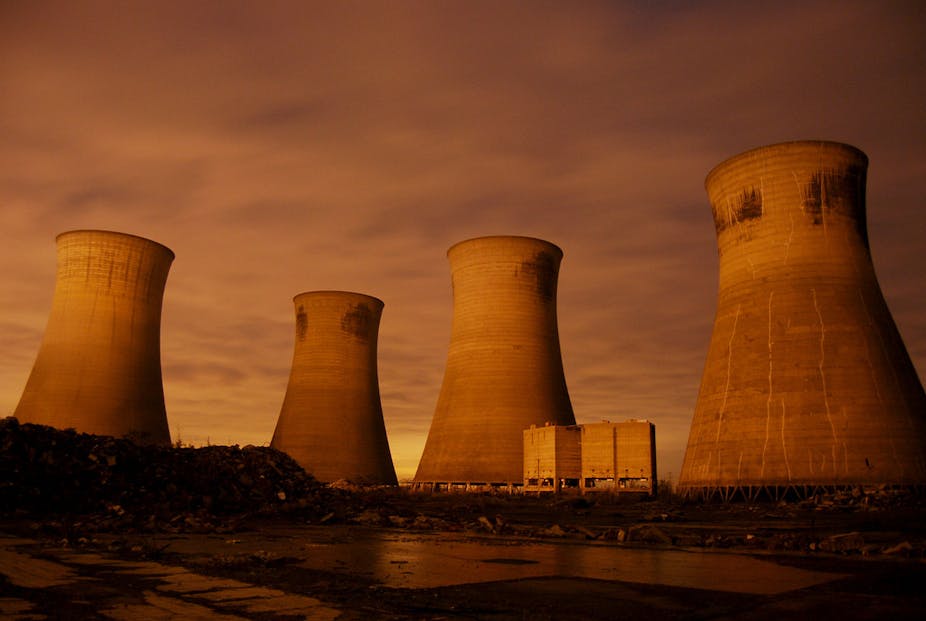While a privatised energy market has delivered stable and cost-effective electricity to Britain’s national grid for 25 years, the world and the pressures it faces are changing. A group of Newcastle University academics led by Professor Phil Taylor, director of the university’s Institute for Research on Sustainability, this week raised some important questions that go right to the heart of current energy policy dilemmas.
One of the most controversial points is the contradiction between the liberalised energy market philosophy dominant since 1990, and governments’ apparent inability to ensure the market invests in the low-carbon technologies necessary to meet their ambitious emissions reductions targets. More central planning and a strategic view beyond market forces, the academics argue, is needed. So is a return to something like the CEGB, the Central Electric Generating Board responsible for Britain’s power supply until privatisation, the way forward?
In reality, governments in the UK and abroad have for some time been drifting away from relying on market forces alone. The obvious explanation is that markets respond only to the signals they are given. If producing carbon and other greenhouse gases comes with no significant cost attached, then it is quite rational for power companies, responsible for delivering profits to their shareholders, to continue to burn fossil fuels.
The main mechanism for introducing emissions limits through market forces, the EU emissions trading scheme, was largely undermined by an excessively generous initial issue of permits, doubts about the scheme’s long-term future and a lack of flexibility in responding to the recession or to the impact of other EU or national policies aimed at supporting renewables or energy efficiency.
So Professor Taylor’s broadside is on strong ground when he argues that fossil fuel-generated energy is too cheap – little or no costs have been assigned to the very substantial future burden brought about by the consequences of a changing climate driven by CO2 emissions.
A little consistency, please
Chief among the other market-limiting factors is the sheer uncertainty brought about by inconsistent energy and climate policy that deters new investment. This has already seen companies close power stations and abandon plans for new capacity.
There is no global shortage of infrastructure investment money that seeks only modest returns in an era of low interest rates. But those investors quite reasonably demand at least a reasonable degree of certainty before investing huge sums. In practice that requires very strong government and regulatory commitments.
British governments commitments to low-carbon investments include feed-in tariffs or other subsidies for both renewables and nuclear energy. Carbon capture and storage (CCS), probably a vital component of a long-term strategy, has not received much funding so far, with only two projects (in Yorkshire and Scotland) underway. Like it or not, a green agenda has drawn government into making decisions for the power sector. It’s hard to see a return to reliance on markets alone to deliver climate policy objectives.
…and competence
The challenge is to make sure that this is done competently, resulting in a well-balanced mix of power generating plant for the future and equally important investments to improve transmission networks and energy efficiency. In the form of the Department for Energy and Climate Change, the government seems ill-equipped for the task.
Professor Taylor argues for “an independent, expert body who can act as an overall system architect”, but we need to be much more specific about what such a strategic authority would be and what we would want from it. Independent expert advice already comes through the Committee on Climate Change. We can assume a great deal of technical advice comes from the National Grid. But keeping the ultimate decision-making within government has serious weaknesses – not least an increased vulnerability to lobbying from special interest groups, and to a politicisation of the decision-making process.
Almost certainly we require an independent agency formally responsible for delivering a low-carbon power sector, making procurement choices, and with the power to enter into long term contracts with energy companies. One option, but not the only one, would be to give these powers to the National Grid, which is already a vendor-neutral provider of core system services. Such an agency could be public or private sector, and unlike the CEGB would not be encouraged to own or build its own power stations.
Competition still key
Whatever the answer this would be a major institutional change, with huge commercial implications for the sector. Professor Taylor’s brief implicitly assumes that more central control and planning of supply will be compatible with the aim to generate more competition among supply companies. At the very least this is not obviously the case; in the context of current markets, central direction tends to undermine competition. We need a new take on the retail market that will allow more companies to take their own approaches to what products and packages to offer consumers. This should promote innovation in the ways consumers use energy, not least in ways that reflect its true cost, as Professor Taylor advocates.
The most impressive example of a large and successful power sector decarbonisation has been the huge French nuclear programme of the 1980s. This was driven by political consensus on the strategic need to reduce oil dependency. Its essential features were a powerful but independent agency, combined with a wholehearted commitment from the government to the objective. In the UK, these have been often promised but not yet delivered. Britain need not copy France’s reliance on a nuclear programme, but these two features – often promised in the UK but not yet delivered – are not optional to copy its success.

